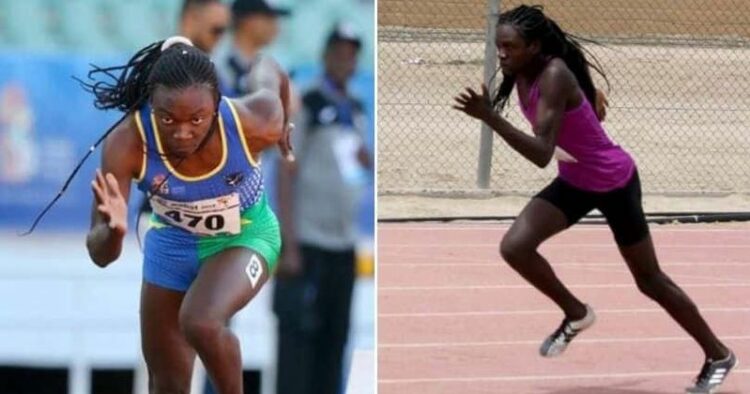Five female athletes, including Namibia’s 18-year-old sprinters, Christine Mboma and Beatrice Masilingi, are ineligible to compete in the 400-meter dash at the Tokyo Olympics. According to ESPN, medical tests concluded that the athletes have high natural testosterone levels, ESPN reported.
With the seventh-fastest time ever recorded for a woman in the 400-meter, Mboma finished with a time of 48.54 seconds in Poland. Masilingi finished with a time of 49.53 seconds in April to record the third-fastest time of 2021.
The two 18-year-old athletes were ruled ineligible because of World Athletics’ policy on Athletes with Differences of Sex Development (DSD).
Namibia’s Christine Mboma and Beatrice Masilingi have been withdrawn from the 400m race at the Olympics by World Athletics.
They are said to not be eligible for female classification.
The same rules are affecting Caster Semenya, Francine Niyonsaba and Margaret Wambui. pic.twitter.com/5I4WF4ZL7Z
— Africa Facts Zone (@AfricaFactsZone) July 2, 2021
Christine Mboma set the African senior and world U-20 record in 400m at age 18.
Making her the 7th fastest woman ever at the event.
She achieved this feat at the Continental Tour Gold meeting on June 30, 2021.
She set the previous unofficial world U20 records twice in April. pic.twitter.com/ZU3lQ9aTK9
— Africa Facts Zone (@AfricaFactsZone) July 2, 2021
The latest controversy is very similar to the situation involving South Africa’s Caster Semenya. Semenya has been barred from taking part in the 800-meter race at the Tokyo Games. Francine Niyonsaba of Burundi and Margaret Wambui of Kenya are also prohibited from participating in the 800-meter run due to their testosterone levels.
Related Story: Germany Promises $1.34 Billion to Namibia for Herero-Namas Genocide
Semenya said she took medication from 2010 to 2015 to lower her testosterone levels, and the ongoing battle to compete has “destroyed” her mentally and physically. The two-time Olympic champion, who has lost two appeals, is now waiting for a third to be heard.
According to Blavity Semenya said, “I am very disappointed by this ruling, but refuse to let World Athletics drug me or stop me from being who I am. Excluding female athletes or endangering our health solely because of our natural abilities puts World Athletics on the wrong side of history.”
Mboma and Beatrice Masilingi will now “focus their full attention” on the 200-meter race Namibia’s athletics federation said.
“It is important to understand that both our athletes were not aware of this condition, neither did any family member, their coach or the NNOC-CGA [Namibia Olympic Committee] were aware of it,” the Namibia Olympic Committee wrote in a statement.
According to Reuters, Namibia’s government issued a statement to speak up for the athletes.
“The Ministry calls upon Athletics Namibia and the Namibia National Olympics committee to engage both the International Association of Athletics Federations (now known as World Athletics) and International Olympics Committee to seek ways that would not exclude any athlete because of natural conditions that are not of their own making. The Ministry calls upon governing bodies to level the playing fields that do not exclude Africans from competing at the international stage.”















